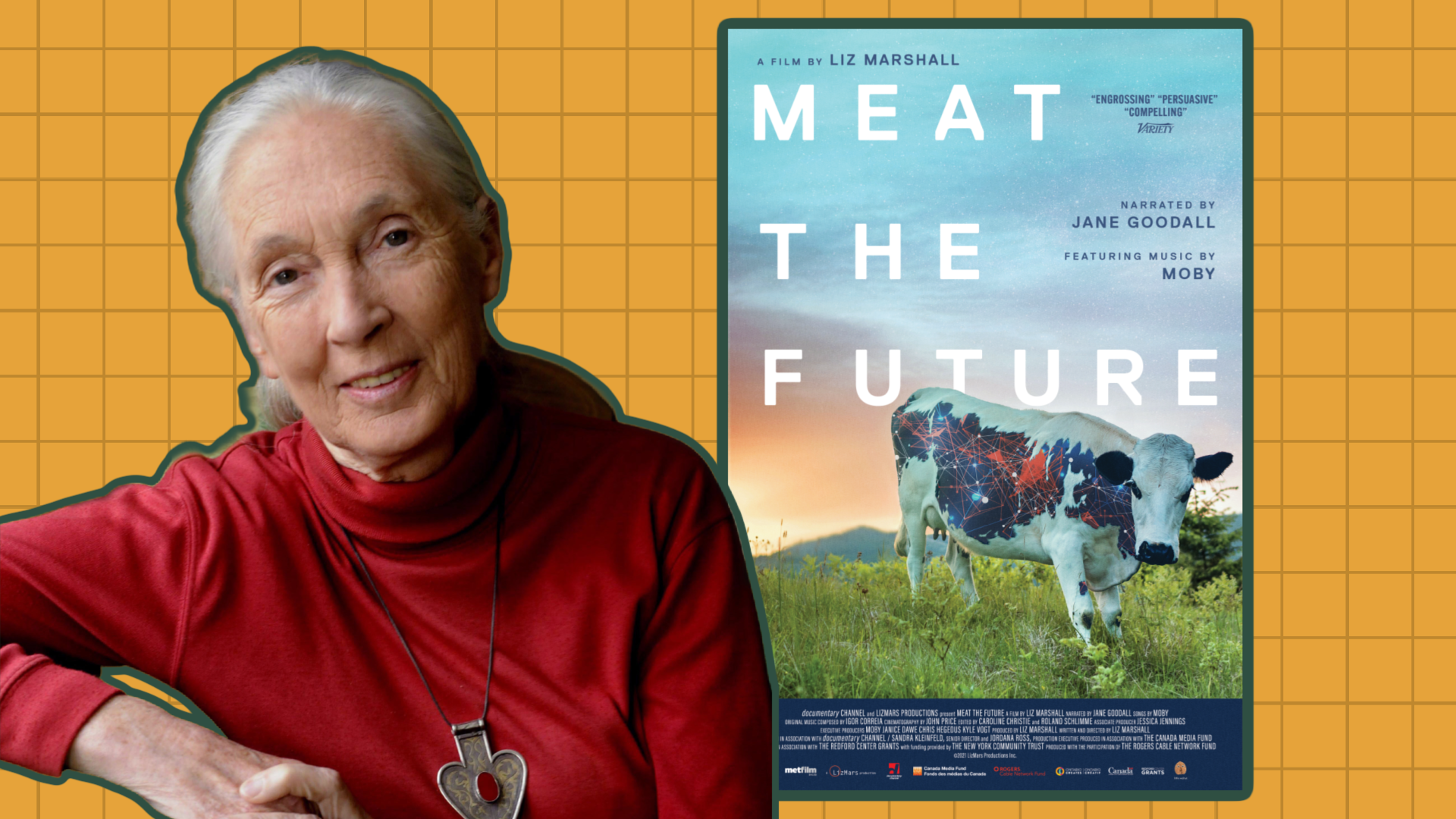'Meat the Future' Challenges Viewers to Think About the Evolution of Agriculture

Jane Goodall narrates the new documentary film "Meat the Future" (Photo: Courtesy 'Meat the Future' / Giant Pictures)
A new documentary, directed by award-winning Canadian filmmaker Liz Marshall and narrated by Dr. Jane Goodall, takes a deep dive into the future of food. Meat the Future focuses on Upside Foods, a ‘clean,’ cultivated meat brand, and examines how this type of protein grown from cells has the potential to change the future of the meat industry.
The documentary follows the CEO and co-founder of Upside Foods, Dr. Uma Valeti, from 2016 to 2022, documenting the company’s growth as the first clean meat startup in the world.
‘Clean meat,’ which has also been labeled ‘cultivated meat’ and even ‘pure meat,’ is “meat produced by cultivating cells directly,” according to the Good Food Institute. This means that stem cells were collected from an animal and grown into muscle tissue, creating a product that mimics the flavor and texture of meat while eliminating the ethical questions and environmental effects of traditional animal agriculture. Upside Foods has been a leader in the space, and the documentary follows the company’s CEO and co-founder, Dr. Uma Valenti, from 2016 to 2022. Marshall describes the film as capturing “the birth of an industry.”
Marshall previously turned her lens on the meat industry in her documentary The Ghosts in Our Machine. After that film came out in 2013, she says she was “looking to follow a solution” for the future of agriculture for her next project. That’s when she came across Upside Foods, known then as Memphis Meats. “[Memphis Meats] just seemed like a fascinating and exciting and immersive possibility to follow as it developed,” Marshall recalls.
“Everything comes together in this issue,” including “animals, humans, and the environment,” Marshall says. “The whole world is not going vegetarian or vegan. So we need solutions to the current conventional methods of meat-making. And [clean meat] seems like the future.”
Marshall became familiar with clean meat from Dutch scientist Mark Post’s prototyping of the hamburger in 2013. When she saw that Upside Foods had unveiled the world’s first cultivated meatball, then called the cultured meatball, in early 2016, she reached out to Dr. Uma Valeti to learn more. A “light bulb immediately went off” Marshall recalls. She saw the possibility of clean meat becoming a large part of the global solution to the future of agriculture, and wanted to explore the possibility of Upside Foods being the subject of her next project.
A cardiologist by training, Valeti had moved his family from Minnesota to the Bay Area in order to co-found Upside Foods. “Centering the story around Uma made sense to me, because he had taken this enormous risk,” Marshall says. “He’s not a salesman, he’s a genuine person who is really motivated by this dream that he has, to be part of transforming the food system.”
When Marshall went out to secure funding to get the documentary made, things didn’t immediately go her way. There was skepticism about investing in following a small company attempting to break into a new industry. “It was a really hard film to pitch, because the funders didn’t know if it was a risk to them, as so many startups evaporate,” Marshall says.
So, she says, she “went on her own instinct” for many months – but eventually the compelling story of a “journey of following the start of such a groundbreaking industry” persuaded potential funders to commit. Meat the Future was ultimately funded by Documentary Channel, Canada Media Fund, Ontario Creates, the Canadian Broadcasting Corporation, and The Redford Center. Kyle Vogt, co-founder of Twitch, and Moby, who also provides music for the film, are among the executive producers.
Now that the project is out in the world, Marshall said that she views as a tool to educate the public about the possibilities of lab-created meat protein. It “doesn’t tell people what to think, it opens people’s minds to a new way of thinking and seeing,” she says. Upon watching the film, the director hopes viewers see that “we need to hope, we need to imagine, and we need tools to move us forward.”
Meat the Future is currently available to stream on-demand in the U.S. and Canada. Check your provider for details.
Get more of what you love from VT. Follow us on Instagram, Facebook, and Twitter, and sign up for our email newsletters.